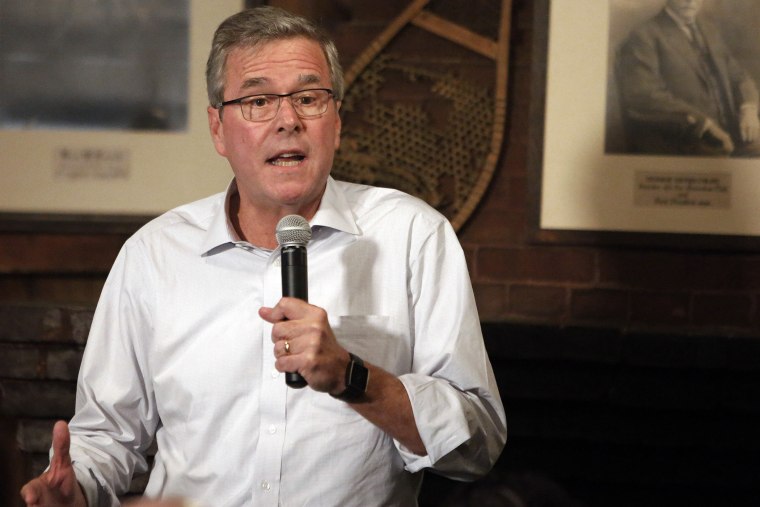Former Florida Gov. Jeb Bush (R) said Friday that the national retirement age needs to be raised "in relatively short order." "I think we need to raise the retirement age, not for the people that already nearing -- receiving Social Security that are already on it [sic], but raise it gradually over a long period of time for people that are just entering the system," Bush said Friday during a speech in New Hampshire.
The key thing to know here is that most people actually begin collecting Social Security benefits at the "early" retirement age of 62 rather than at the full retirement age, which is currently 66 but rising to 67. People who retire at 62 rather than 66 get smaller checks from Social Security, but most Americans do it anyway, because they need the money, hate their job, or both. Christie's proposal isn't just to raise the "full" retirement age to 69; he also says, "We need to raise the early retirement age at a similar pace — raising it by two months per year until it reaches 64 from the current level of 62." In other words, Christie would actually change the age at which people start collecting benefits. As the average American's life expectancy at 60 is about 21 years, this means Christie is effectively proposing an across-the-board benefit cut of almost 10 percent in Americans' lifetime Social Security benefits. Except this is a particularly cruel and regressive form of cut, because life expectancy is longer for richer people. Inequality in life expectancy is also growing over time.
